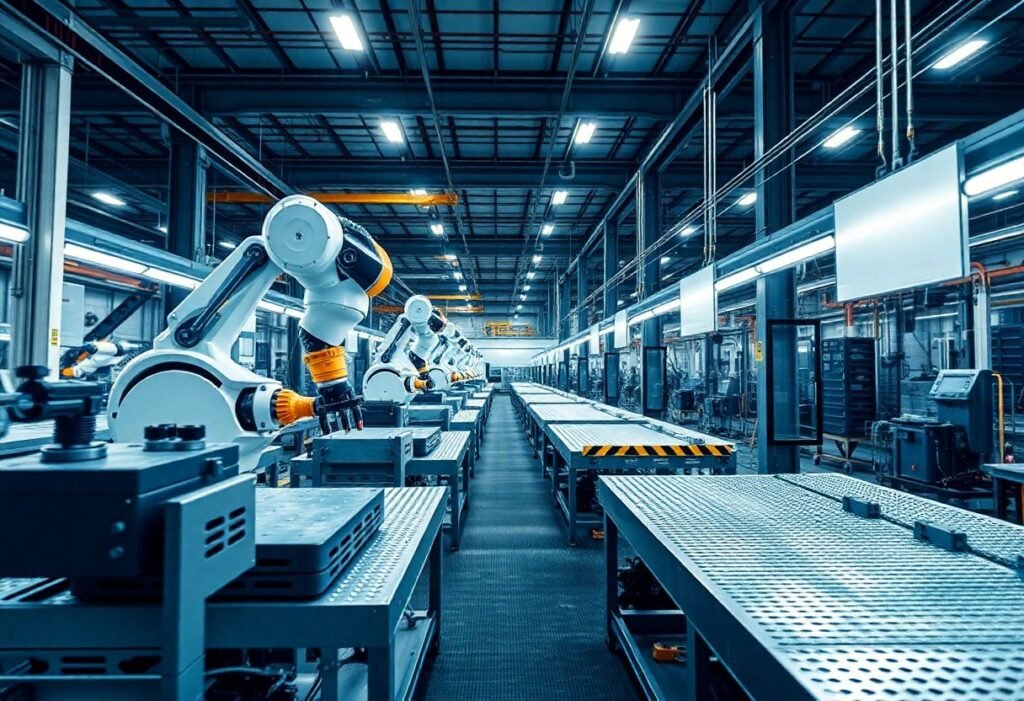Manufacturing is undergoing a significant transformation due to technological advancements. Automation plays a pivotal role in this shift, enabling companies to enhance productivity, reduce costs, and improve quality. As industries embrace innovation, understanding how automation is reshaping manufacturing is essential.
The Rise of Automation in Manufacturing
Automation has emerged as a cornerstone of modern manufacturing. It refers to the use of various control systems for operating equipment in production facilities, including machinery, processes, and production lines. The integration of robotics and automation into manufacturing processes has led to a drastic increase in efficiency. Automated systems can operate continuously without the need for breaks, ensuring that production rates remain high. This has allowed manufacturers to meet the demand for faster production cycles while maintaining a high level of quality in the products being produced. Furthermore, the shift towards automation is not merely about replacing human labor; it also helps in enhancing the overall capabilities of the workforce by freeing them to focus on more skilled tasks.
Benefits of Automation in Production
One of the primary benefits of automation in manufacturing is the significant reduction in operational costs. Automation technology can drastically cut down labor costs, minimize material waste, and lower the chances of human error. When automated systems are implemented, companies often see a decrease in production time, allowing them to allocate resources more efficiently. Moreover, automation enhances the safety of the workplace, as machines handle dangerous tasks that would otherwise pose risks to human workers. Reducing workplace accidents can also lead to lower insurance costs and improved employee morale. With these improvements, companies can reinvest savings into innovation and growth.
The Role of Smart Technology
The introduction of smart technology has further propelled the automation of manufacturing. The Internet of Things (IoT) enables machinery to communicate with each other and with cloud-based systems, allowing for real-time monitoring and adjustments. Data collected from various automated processes can be used to optimize operations, predict maintenance needs, and improve overall productivity. This level of connectivity not only enhances efficiency but also offers insights that can help businesses make informed decisions swiftly. As smart technologies continue to evolve, they will inevitably play a more crucial role in the fabric of manufacturing operations.
Challenges of Implementing Automation
Despite the numerous advantages of automation, some manufacturers may face challenges during implementation. One common hurdle is the initial investment required for automation technology and infrastructure. Moreover, there may be resistance from the workforce who fear job loss due to automation. It is essential for companies to thoroughly plan their automation strategies and communicate the benefits to their employees. Workers can be retrained to manage and work alongside automated systems, transforming potential job loss into opportunities for skill development. Addressing these challenges effectively can lead to a successful integration of automation in manufacturing processes.
Future Trends in Manufacturing Automation
The future of manufacturing will likely see an even deeper integration of automation and advanced technologies. One emerging trend is the use of machine learning and artificial intelligence (AI) in automation processes. These technologies enable machines to learn from data and improve their performance over time. As AI continues to evolve, it will bring forth new possibilities in predictive maintenance, quality control, and supply chain management. Manufacturers who keep pace with these advancements will undeniably stay competitive in an ever-changing market. Embracing these trends will be crucial for sustainable growth and innovation.
Conclusion: Embracing Automation for Innovation
In conclusion, automation is undeniably transforming the landscape of manufacturing. As companies navigate through the challenges and embrace the numerous benefits that automation offers, they are not only improving productivity but also fostering innovation. The manufacturing industry stands on the brink of a revolution, driven by automation and smart technologies. Those who adapt and innovate in response to these changes are likely to lead the way in this new era of manufacturing.
Disclaimer: This article is for informational purposes only and does not constitute professional advice. For specific concerns, please consult an expert.





















